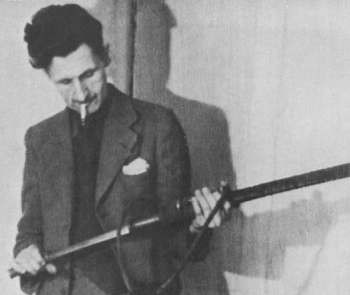
A rebranding and personnel announcement by the CEO of a newly independent franchise. Image from al-Jazeera
1). Jabhat al-Nusra made an important move yesterday when they officially decoupled themselves from al-Qaeda, establishing an independent group. Charles Lister of Foreign Policy says that this shouldn’t make anyone think they are somehow more moderate or less dangerous.
Nobody should be confused by this maneuver: Jabhat al-Nusra, which is also known as the Nusra Front, remains as potentially dangerous, and as radical, as ever. In severing its ties to al Qaeda, the organization is more clearly than ever demonstrating its long-game approach to Syria, in which it seeks to embed within revolutionary dynamics and encourage Islamist unity to outsmart its enemies, both near and far. In this sense, the Nusra Front (and now Jabhat Fateh al-Sham) differ markedly from the Islamic State, which has consistently acted alone and in outright competition with other Islamist armed factions. Instead of unity, the Islamic State explicitly seeks division.
Ultimately, while this may be a change in name and formal affiliation, Jolani’s group will remain largely the same. Therefore, this is by no means a loss to al Qaeda. In fact, it is merely the latest reflection of a new and far more potentially effective method of jihad focused on collective, gradualist, and flexible action. Its goal is to achieve recurring tactical gains that one day will amount to a substantial strategic victory: the establishment of an Islamic emirate with sufficient popular acceptance or support.
This is what we talked about when discussing them last week: that they are smart enough to work in small local gains as a way to expand. It’s why they can outlast ISIS (which isn’t going away anytime soon). It’s also a really good sign of what is happening: we’re not at the beginning of the end, or the midpoint, of the Islamic extremist phenomenon. It’s probably much closer to the beginning. It is shaking itself out, and adjusting to new political realities (many of which are themselves an adjustment to the phenomenon). It will continue to mutate and evolve and operate in a variety of competing and complementary ways for decades.
2). This is a long, detailed, and amazing demographic report about what we know on ISIS foreign fighters, by Nate Rosenblatt at the International Security project of New America. Called All Jihad Is Local, it goes into what makes someone leave to fight for a group like ISIS. It’s a combination of their message and, of course, of local conditions that drive the fighter to leave. There is a lot to absorb in this report, which came out last week, and I’ll be doing a deeper dive into it next week, with its lessons and what it means for the next wave. In the meantime, Bethan Mckernan at The Independent pulled out some charts and info from it to look at.
All in all, what we’re seeing is a time of transition and regrouping. And, blogtimes aside, it is a long process without a clear path. An unexpected military setback by Asad could butterfly-wing the dynamic of jihad in 10 countries. But I think we’re really seeing the clear delineation between two different models: current-period Qaeda and ISIS. There are a lot of in-group differences of course, and there is also a lot of crossover, but for now, that seems to be the helpful model, and something we’ll come back to here. The way these models compete (because it would be reductive to say the “groups” are competing, because both models have incredible amounts of locally-driven varietals), and the way they influence each other, will shape our world for a long time to come.
Anyway, happy Friday.



 Erick Erickson
Erick Erickson 



